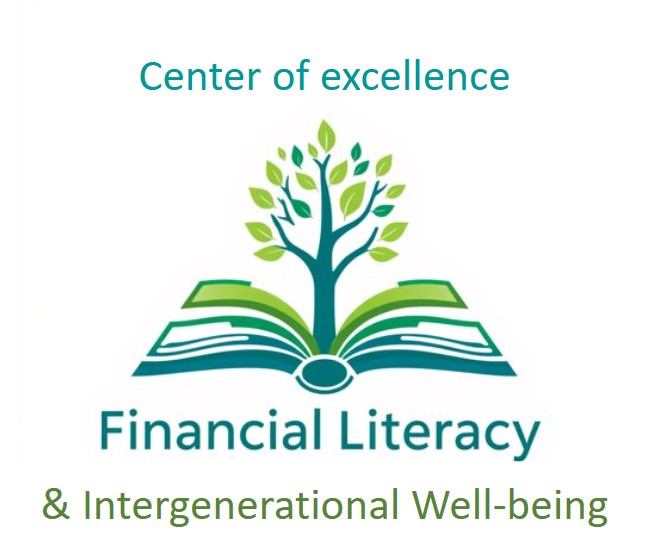The Impact Of Online Game Addiction On Financial Behavior (Case Study Of Gen Z In Sub Urban Islamic Economic Perspective)
 Abstract Views:
116 times
Abstract Views:
116 times
 PDF Downloads:
63 times
PDF Downloads:
63 times
Abstract
Purpose: The purpose of this study is to examine, from an Islamic economic standpoint, the effects of online game addiction on the financial behavior of Generation Z in suburban regions. This study is novel because it combines behavioral finance, digital consumption patterns, and Islamic ethical values to investigate how digital-native youth handle their finances after engaging in prolonged gaming. This has not been extensively studied in prior research, especially in the context of Islamic economics.
Method: This study used a qualitative case study methodology. 13 members of Generation Z living in suburban Sidoarjo who fit the description of online gamers who play for more than five hours every day and have dealt with in-game purchases made up the unit of analysis. Triangulation was used to ensure the validity of the data. Islamic financial behavior theories served as the foundation for the conceptual framework, and descriptive qualitative analysis with phases of data reduction, presentation, and conclusion drawing was the analytical methodology employed.
Result: The findings reveal that online game addiction significantly influences impulsive and unplanned digital spending habits among Gen Z. While many informants are aware of Islamic financial principles, their application in daily financial decisions remains minimal. However, some informants have begun adopting more responsible behaviors. This study contributes to the growing discourse on Islamic behavioral finance and recommends the development of contextualized Islamic financial literacy models for digital-native generations. Future research may expand into quantitative assessments or comparative studies between urban and rural youth
Downloads
References
Alfarisi, A. H., Suryawan, M. E., & Febrilia, I. (2022). Pengaruh Nilai-Nilai fungsional, Sosial, Dan emosional terhadap NIAT Beli Barang Virtual Game Online. Jurnal Bisnis, Manajemen, Dan Keuangan, 3(1), 297–313. doi:10.21009/jbmk.0301.22
Alfiany, D. E., & Sutrisno, S. (2025). The effect of Financial Literacy, overconfidence, and fear of missing out (FOMO) on financial behavior and financial decisions of Sky Players: Children of the Light. International Journal of Economics, Business and Management Research, 09(01), 196–
doi:10.51505/ijebmr.2025.9114
Ardiansyah, A., Risnita, R., & Jailani, M. S. (2023). Teknik pengumpulan data Dan instrumen Penelitian Ilmiah pendidikan Pada Pendekatan Kualitatif Dan Kuantitatif. Jurnal IHSAN : Jurnal Pendidikan Islam, 1(2), 1–9. doi:10.61104/ihsan.v1i2.57
Arifa, J. S. N., & Rediana, S. (2020). Pengaruh pendidikan keuangan di keluarga, pendapatan, dan literasi keuangan terhadap financial management behavior melalui financial self-efficacy sebagai variabel mediasi. Economic Education Analysis Journal, 9(2), 522–568.
Ariyana, R. Y., Haryani, P., & Fatkhiyah, E. (2021). Pemanfaatan Marketplace Media Sosial Sebagai Sarana Promosi Produk UMKM Pada Kelompok Informasi Masyarakat Kabupaten Bantul. Jurnal Dharma Bakti-LPPM IST APKRIND, 4(1), 67–76.
Arrosyid, A. (2021). Islam Dan moral Ekonomi Dalam pemikiran sjafruddin prawiranegara. Masyrif : Jurnal Ekonomi, Bisnis Dan Manajemen, 2(1), 27–36. doi:10.28944/masyrif.v2i1.495
Asosiasi Penyelenggara Jasa Internet Indonesia, A. (2024). Survei Penetrasi Internet Indonesia 2024. Retrieved from https://survei.apjii.or.id/
Aulia, N. S., Ruhana, N., & Noeridha, N. A. (2023). Pengaruh literasi keuangan syariah terhadap Perilaku Keuangan Pada Mahasiswa politeknik negeri bandung (studi Pada Mahasiswa Keuangan syariah politeknik negeri bandung). Journal of Applied Islamic Economics and Finance, 3(3), 651–662. doi:10.35313/jaief.v3i3.5500
Bafadal, R., & Rosyid, F. (2024). Memahami Kebutuhan belajar generasi z melalui asesmen personal berbasis artificial intelegence. Journal of Innovation and Teacher Professionalism, 3(1), 182–188. doi:10.17977/um084v3i12025p182-188
Edy, S., Wulandari, S. R., & Hafizh, D. A. (2024). Membangun Ekonomi Nasional dengan Landasan Akhlaq Islami dan Hukum Islam. TASYRI’: Jurnal Muamalah Dan Ekonomi Syari’ah , 6(2), 19–37. doi:DOI : https:/ /doi.org/10.55656/tjmes.v6i2. 2 5 0
Fadli, M. R. (2021). Memahami Desain metode Penelitian Kualitatif. HUMANIKA, 21(1), 33–54. doi:10.21831/hum.v21i1.38075
Fauzia, I. Y. (2020). Studi fenomenologi Budaya Perencanaan Keuangan Keluarga Musllim di Sidoarjo Dan Surabaya. AKUNSIKA: Jurnal Akuntansi Dan Keuangan, 39–52. doi:10.31963/akunsika.v1i1.1731
Febriani, R. N. (2017). Kenali Karakter remaja generasi Z. Retrieved from https://www.pikiran- rakyat.com/bandung-raya/pr-01277638/kenali-karakter-remaja-generasi-z-397866?page=all
Firdaus, Y., Pebrianti, Y., & Andriyani, T. (2018). Pengaruh Kecanduan Game Online terhadap Perilaku Konsumtif Siswa Pengguna Game Online. Jurnal Riset Terapan Akuntansi, 2(2), 169–180. doi:https://doi.org/10.5281/zenodo.3840736
Gazali, H. (2021). Islam Untuk Gen Z: Mengajarkan Islam, Mendidik Muslim Generasi Z: Panduan Bagi Guru Pai. doi:10.31219/osf.io/w3d7s
Griffiths, M. D. (2015). Gaming Addiction and Internet Gaming Disorder . In The Video Game Debate (pp. 74–93). essay, New York, NY: Routledge.
Heriyanto, D., Utomo, W. P., Pasaman, K. A., Rizka, M. T., Hutauruk , olanda G., & Yulianti, F. (2024). (rep.). Indonesia Gen Z Report 2024 (pp. 1–97). Surabaya, IDN: IDN Research Institute. Humaidi, A., Khoirudin, M., Adinda, A. R., & Kautsar, A. (2020). The effect of financial technology, demography, and Financial Literacy on financial management behavior of productive age in Surabaya, Indonesia. International Journal of Advances in Scientific Research and Engineering, 06(01), 77–81. doi:10.31695/ijasre.2020.33604
Khaliq, I., Listyorini, S., & Pradhanawati, A. (2022). Pengaruh Desain Produk Dan Harga Terhadap Keputusan Pembelian virtual Item Pada game online “mobile legends Bang Bang” (Studi Pada Konsumen mobile legends Bang Bang kota Semarang). Jurnal Ilmu Administrasi Bisnis, 11(3), 411–419. doi:10.14710/jiab.2022.34917
Kristyowati, Y. (2021). Generasi “Z” Dan Strategi Melayaninya. Ambassador: Jurnal Teologi Dan Pendidikan Kristiani, 2(1), 23–34.
Liah, A. N., Maulana, F. S., Aulia, G. N., Syahira, S., Nurhaliza, S., Abdul Rozak, R. W., & Insani,
N. N. (2023). Pengaruh media Sosial Terhadap Degradasi moral Generasi Z. Nautical : Jurnal Ilmiah Multidisiplin Indonesia, 2(1), 68–73. doi:10.55904/nautical.v2i1.677
Maharani, A. S., Fimansyah, W., & Daud, D. (2022). Pengaruh game online Terhadap Perilaku Konsumtif Remaja di Desa tebel Kabupaten Sidoarjo. Buddayah : Jurnal Pendidikan Antropologi, 4(1), 29. doi:10.24114/bdh.v4i1.35639
Maharani, D., & Yusuf, M. (2021). Implementasi Prinsip-Prinsip Muamalah Dalam Transaksi ekonomi: Alternatif Mewujudkan aktivitas ekonomi halal. TAWAZUN : Journal of Sharia Economic Law, 4(1), 72–83. doi:10.21043/tawazun.v4i1.8338
Mulyantini, S., & Indriasih, D. (2021). Cerdas Memahami Dan Mengelola Keuangan Bagi Masyarakat Di Era Informasi Digital. Surabaya, Indonesia: Scopindo Media Pustaka.
Munawaroh, K., Deliani, N., & Hamzah, P. K. (2023). Pengaruh Kecanduan Game Online Berbayar Terhadap Perilaku Konsumtif Mahasiswa. El-Hadhary: Jurnal Penelitian Dan Pendidikan Multidisiplin, 1(2), 43–54. doi:https://doi.org/10.61693/elhadhary.vol102.2023.43-54
Normawati, R., Rahayu, S., & Worokinasih, S. (2021). Financial knowledge, digital financial knowledge, financial attitude, financial behaviour and financial satisfaction on millennials. Proceedings of the 1st International Conference on Law, Social Science, Economics, and Education, ICLSSEE 2021, March 6th 2021, Jakarta, Indonesia. doi:10.4108/eai.6-3-2021.2305967
Prandini, L. D. Y., & Sayang Telagawathi, N. L. (2021). Faktor - Faktor Yang menentukan Keputusan Pembelian produk virtual dalam online games mobile legends. Bisma: Jurnal Manajemen, 7(2), 294. doi:10.23887/bjm.v7i2.32500
Pratama, R. A., Widianti, E., & Hendrawati, H. (2020). Tingkat Kecanduan Game Online Pada Mahasiswa fakultas keperawatan. Journal of Nursing Care, 3(2), 110–118. doi:10.24198/jnc.v3i2.22850
Rahman, A. Z., & Ernawati, R. (2018). Gambaran Tingkat Kecanduan Remaja dengan Game Online di Universitas Muhammadiyah Samarinda (D3 Final Project).
Rahman, I. A., Ariani, D., & Ulfa, N. (2022). Tingkat Kecanduan Game Online Pada Remaja. Jurnal Mutiara Ners, 5(2), 85–90. doi:10.51544/jmn.v5i2.2438
Rakhmah, D. N. (2020). Memahami Generasi Pasca millenial: Sebuah Tinjauan Praktik Pembelajaran Siswa. Masyarakat Indonesia, 46(1), 49–64. doi:10.14203/jmi.v46i1.866
Sagara, S., & Masykur, A. M. (2020). Gambaran online gamer. Jurnal EMPATI, 7(2), 802–808. doi:10.14710/empati.2018.21716
Saputri, I., & Sucipto, R. H. (2023). Pengaruh Financial Literacy Dan Harga Terhadap Keputusan Pembelian virtual goods game online mobile legends. Jurnal Pariwisata Bisnis Digital Dan Manajemen, 2(2), 90–96. doi:10.33480/jasdim.v2i2.4660
Silvy, M., & Yulianti, N. (2013). Sikap Pengelola keuangan Dan Perilaku Perencanaan Investasi keluarga di surabaya. Journal of Business and Banking, 3(1), 57. doi:10.14414/jbb.v3i1.254
Subaidi, M., & Muchlasin, M. (2022). Abdul Manan Economics Perspektif Muhammad Abdul Mannan Tentang kegiatan Ekonomi Islam. Jurnal Adz-Dzahab: Jurnal Ekonomi Dan Bisnis Islam, 7(1), 109–128. doi:10.47435/adz-dzahab.v7i1.868
Suryanto, S. (2017). Pola Perilaku Keuangan Mahasiswa Di Perguruan Tinggi., VII(1), 11–20. doi:https://doi.org/10.34010/jipsi.v7i1.328
Tambun, S., & Nurwanti, F. (2023). Moderation of intellectual intelligence on the effect of individual behavior, modern living environment, and financial well-being on women’s Financial Literacy Capacity. Journal of Entrepreneurship & Business, 4(1), 1–12. doi:https://doi.org/10.24123/jeb.v4i1.5376
Ulfa, M., & Risdayati, R. (2017). Pengaruh Kecanduan Game Online Terhadap Perilaku Remaja Di Mabes Game Center Jalan Hr.Subrantas Kecamatan Tampan Pekanbaru. Jurnal Online Mahasiswa FISIP Universitas Riau, 4(1), 1–13.
Xu, X.-Y., Tayyab, S. M., Jia, Q., & Huang, A. H. (2025). A multi-model approach for the extension of the use and gratification theory in video game streaming. Information Technology & People, 38(1), 137–179. doi:10.1108/itp-08-2021-0628

This work is licensed under a Creative Commons Attribution 4.0 International License.
Articles published in Journal of Entrepreneurship & Business are licensed under a Creative Commons Attribution 4.0 International (CC BY) license. You are free to copy, transform, or redistribute articles for any lawful purpose in any medium, provided you give appropriate credit to the original author(s) and the journal, link to the license, and indicate if changes were made.
Authors submitting to this journal agree to make their work freely available under the CC BY 4.0 license, ensuring broad dissemination and reuse. The full license details can be accessed at https://creativecommons.org/licenses/by/4.0/.
This ensures that they receive the maximum dissemination because there are no barriers to access. This license allows readers to disseminate and reuse the paper, but always requires them to grant the authors and the first publication full credit.
While JEB upholds ethical publishing standards, the responsibility for ensuring originality and compliance with copyright regulations lies with the authors. The journal is not liable for any legal claims related to the content of published articles.
For further inquiries, please contact the editorial team.

 DOI:
DOI:










